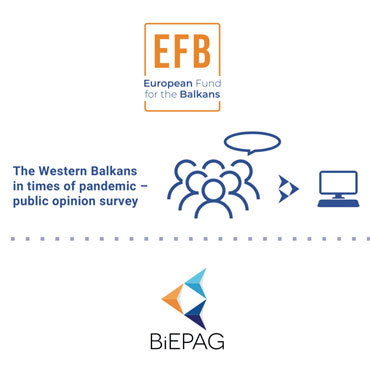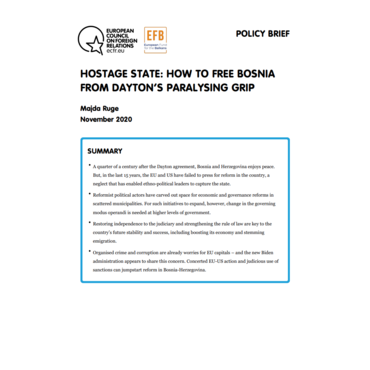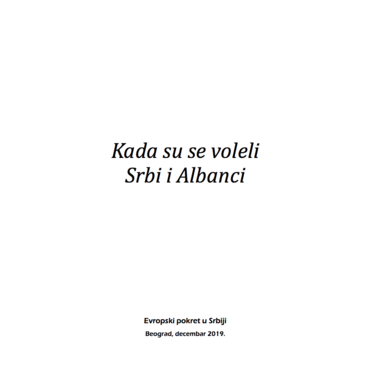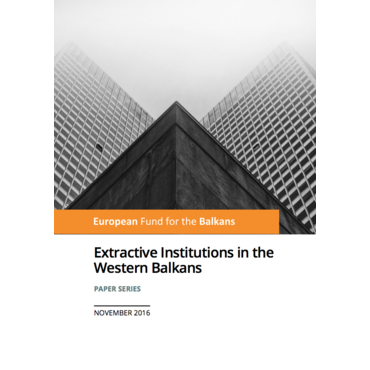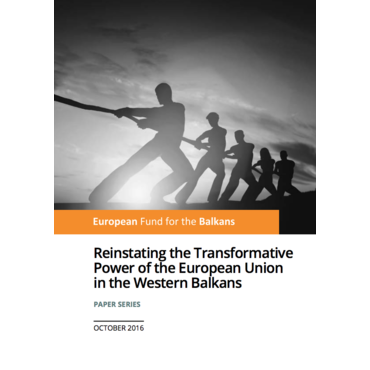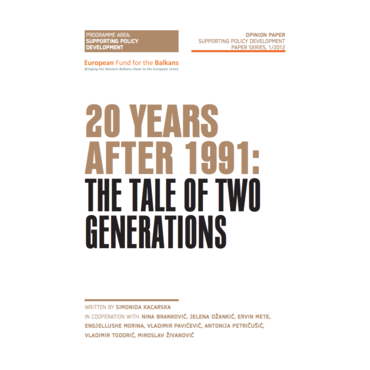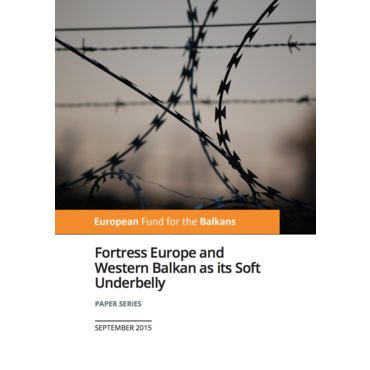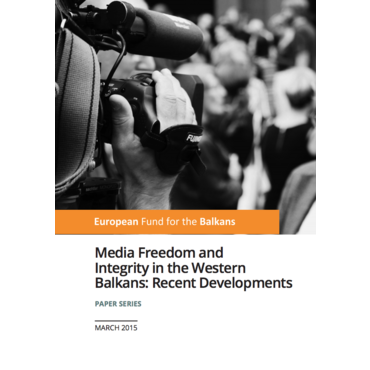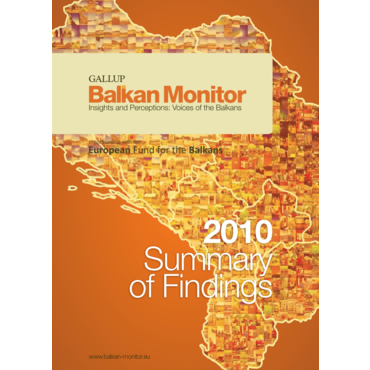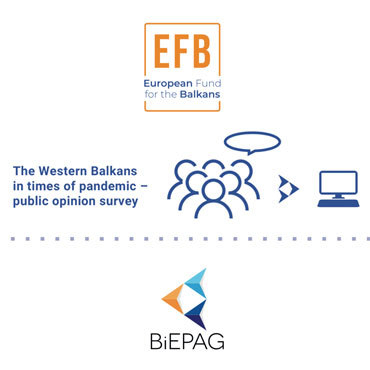
The Western Balkans in times of Pandemic: EU, External Actors and Citizens' Trust
In 2021, the European Fund for the Balkans (EFB) commissioned Ipsos Strategic Marketing... to conduct a survey among residents in all six Western Balkan countries (Albania, Bosnia and Herzegovina, Kosovo, Montenegro, North Macedonia and Serbia) on 3 key topics: EU, External Actors and Citizens’ Trust in times of the Pandemic. The opinion poll was conducted on a nationally representative sample consisting of a minimum of 1000 respondents aged 18+, by means of telephone and online interviews. Unfortunately, there is a shortage of public opinion surveys that encompass the entire Western Balkans and allow for comparisons between countries in the region. With this in mind, the members of the Balkans in Europe Policy Advisory Group (BiEPAG) were involved in the analysis of the newly formed context and produced policy briefs on their assessment of the data’s implications on the key topics. The policy focus was on the Western Balkans in relation to EU integration, elections, civic engagement and conspiracy theories and Western Balkans in times of Pandemic: EU, External Actors and Citizens' Trust. All the analysis and policy briefs were based on the results of the accompanying regional Ipsos opinion polls conducted in Albania, Bosnia and Herzegovina, Kosovo, Montenegro, North Macedonia, and Serbia. Three BiEPAG policy analysis were produced based on the data of the Ipsos regional public opinion poll: Outta Trust? (Post) Pandemic Trust and Democratic Resilience in the Balkans Geopolitically irrelevant in its ‘inner courtyard’? Escaping the Transactional Trap: The way forward for EU Enlargement The BiEPAG policy products were disseminated and promoted to decision- and opinion-makers in the EU and in the Western Balkans. Later on with an interest of promoting independent research, knowledge-sharing and a better understanding of the public opinion in the Western Balkans region, the European Fund for the Balkans decided to share the complete results of its recent over all-encompassing survey with the public, so as to encourage the media, researchers, civil society and governments for further use of the data. Perhaps this can lead to improved policy making and understanding of the public mood in these difficult times. The whole EFB commissioned Ipsos survey can be downloaded at the following link. Disclaimer: You are welcome to quote and use this data in your own published work on the condition that you cite EFB as commissioner of the survey, and provide a link to the survey on the EFB website.
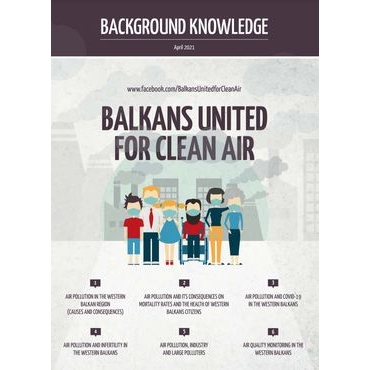
Balkans United for Clean Air - Collection of Briefs
The Balkans United for Clean Air campaign aimed to inform Western Balkan citizens on the causes and consequences of air pollution, and the possible solutions which would improve air quality. Between January and April 2021, we have shared info on six important topics related to the air pollution in the #WesternBalkans promoting them via all the disposable channels, social networks and traditional media in the region, thus creating a network of 435 organizations, individuals and experts, reaching 650.00 citizens and getting publicity in more then 500 publications in the media. As an add-on, we are sharing the collection of briefs authored by renowned scientists, doctors, civil society activists and experts in the respective areas that have served us as a background knowledge in designing the campaign which was based on facts, figures and in-depth knowledge of the 6 tackled topics: - Air Pollution - Causes and Consequences - Air Pollution and Mortality rates - Air Pollution and Covid19 - Air Pollution and Infertility - Air Pollution, Industry and Large Polluters - Air Quality and Monitoring The “Balkans United for Clean Air” campaign was initiated by the European Fund for the Balkans, in partnership with the Right to the City (Belgrade, Serbia), Renewables and Environmental Regulatory Institute (Belgrade, Serbia), Belgrade Open School (Belgrade, Serbia), Environmental and Territorial Management Institute (Tirana, Albania), Ekoforum (Zenica, Bosnia and Herzegovina), Centre for Ecology and Energy (Tuzla, Bosnia and Herzegovina), Sbunker (Pristina, Kosovo), Air Care (Skopje, North Macedonia) and OZON (Podgorica, Montenegro). DOWNLOAD PUBLICATION

